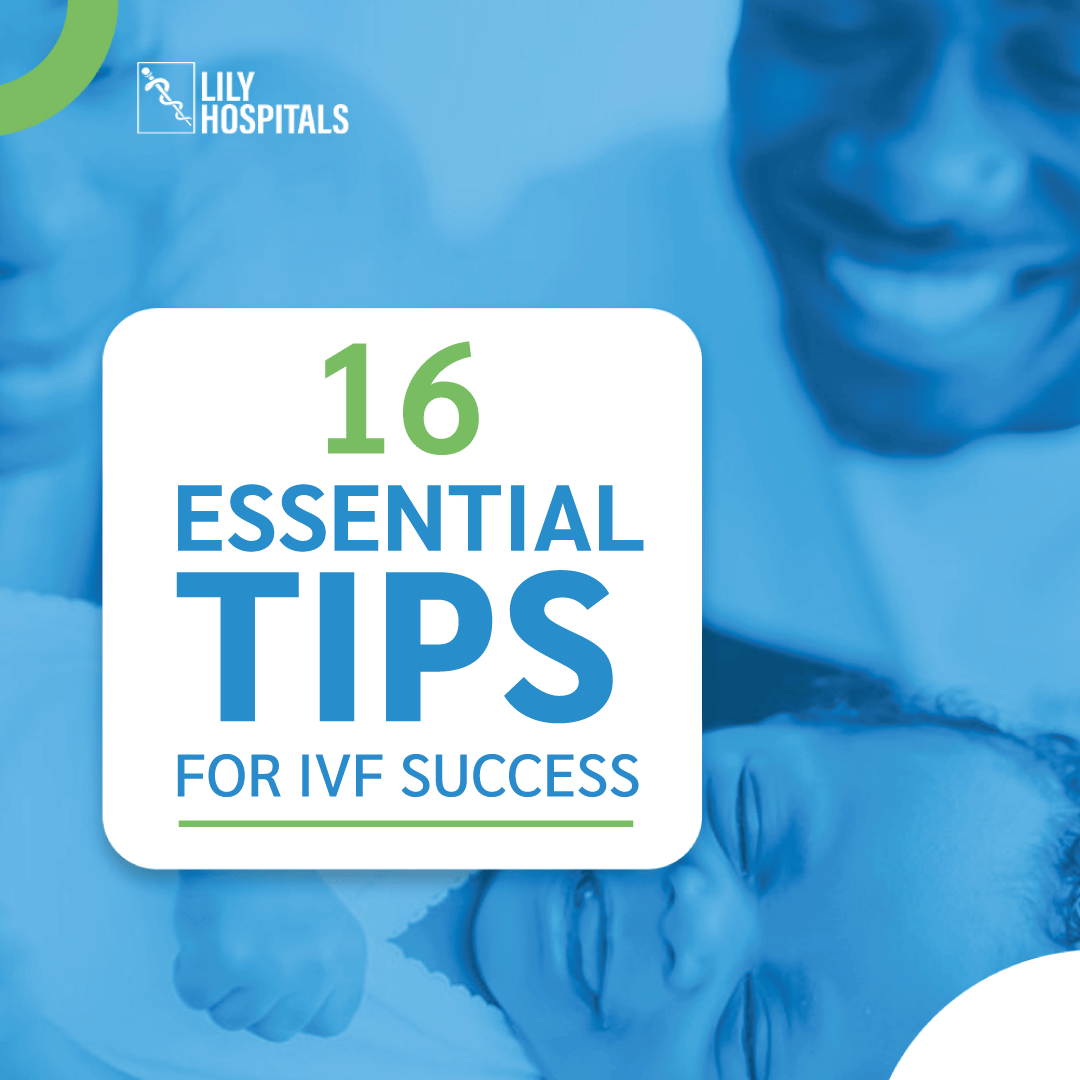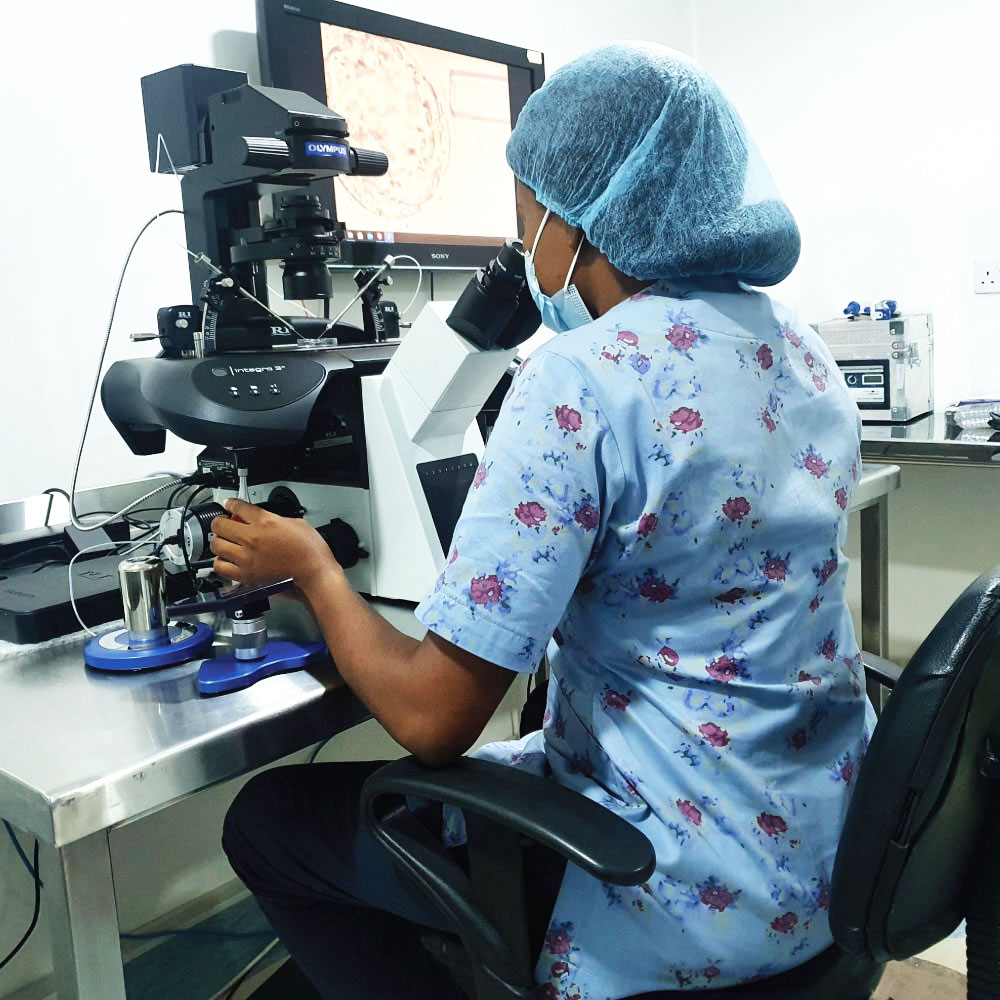
Knowing the essential tips for IVF success is crucial for your IVF treatment journey. In vitro fertilisation (IVF) is a transformative journey for many aiming to conceive, and understanding the process can significantly enhance your prospects of success. It begins with selecting a reputable clinic that aligns with your needs, an essential step that sets the tone for the entire treatment. Opting for a clinic with a proven track record of successful outcomes, transparent procedures, and supportive care can make a substantial difference.
Once you embark on the treatment, being well-informed about each stage helps you navigate the IVF process with greater confidence. From the initial testing to the egg retrieval and embryo transfer, every step requires careful consideration and preparation. Being proactive about your health, following your doctor’s advice, and maintaining open communication with the clinic contribute to a supportive environment conducive to success.
After treatment, the post-procedure period is a critical time for both your physical well-being and emotional health. It’s essential to follow the clinic’s guidelines, prioritise self-care, and seek support if needed, as these elements collectively contribute to your IVF journey’s potential success.
IVF Success Tips Key Takeaways
- Choosing a highly regarded clinic is crucial for IVF success.
- Staying informed and prepared at each stage of the treatment supports positive outcomes.
- Post-treatment care and emotional well-being are key components of the IVF process.
Understanding IVF
In-vitro fertilisation (IVF) can be a complex procedure, but understanding its basics and the sequential steps involved can significantly aid in navigating this fertility treatment.
What is IVF
In vitro fertilization (IVF) is a type of assistive reproductive technology (ART). It involves retrieving eggs from a woman’s ovaries and fertilizing them with sperm. This fertilized egg(s) eventually develops into an embryo(s). The embryo(s) can then be transferred to a woman’s uterus or frozen for storage

Why IVF?
IVF is normally recommended to persons or couples with the following issues
- Fallopian tube damage or blockage
- Previous surgery to prevent pregnancy
- Tubal ligation
- Vasectomy
- Issues with sperm
- Unexplained infertility.
- A genetic disorder.
- Issues with Ejaculation
- Inability to carry a pregnancy
- MRKH Syndrome
- Hysterectomy
- Heart disease
- Fertility preservation
The IVF Process Step-by-Step
- Ovarian Stimulation: Your ovaries are stimulated with medications to encourage the development of multiple eggs.
- Monitoring with ultrasound scans and blood tests to track egg development.
- Egg Retrieval: Eggs are retrieved through a minor surgical procedure known as follicular aspiration.
- Typically done under sedation or general anaesthetic.
- Insemination and Fertilisation: The retrieved eggs are mixed with sperm and stored in an environment conducive to fertilisation.
- Use of Intracytoplasmic Sperm Injection (ICSI) if necessary.
- Embryo Culture: Once fertilised, the egg becomes an embryo and is monitored for growth and development.
- Assessment of Embryos: Specialists select the most viable embryo(s) for transfer.
- Embryo Transfer: Embryos are transferred into your uterus 3 to 5 days following egg retrieval and fertilisation.
- A catheter or small tube is used to transfer the embryos.
- Outcome: After embryo transfer, you’ll wait for approximately two weeks before a pregnancy test is conducted to determine if the IVF was successful.
Tips For IVF Success
Achieving success with IVF treatment can be enhanced by thorough preparation and making informed choices. There are 3 key stages which we will highlight below Pre-treatment, treatment and post-treatment. Consider each point highlighted in all stages to improve your chances of a positive outcome.
Pre-Treatment
1) Choosing The Right Clinic
When embarking on the journey of IVF, choosing the right clinic is an important decision that can impact your chances of success. It’s important to consider factors such as:
- Location: Proximity may reduce stress regarding travel and time off work.
- Specialization: Some clinics specialize in certain issues or age groups. Consider a clinic’s experience with your specific circumstances. This means the clinic should have a range of treatment options that will not require you to be moved about or get stuck during treatment.
- Facilities: Look for advanced technology and comprehensive services.
- Staff: Ensure a team of qualified and experienced professionals is available.
- Cost: Understand the full scope of fees and payment options.
- Success rates: Research clinics with transparent and high success rates. They must have a good record of success rate with data to back it up. When examining success rate also consider the following
- Age Group Consideration: Check success rates for your specific age group.
- Treatment Types: Understand rates based on different treatment protocols.
- Duration of Data: Look at outcomes over a consistent period.
Make a checklist of these elements to compare different clinics systematically.
2) Emotional Preparation
Preparing yourself emotionally is vital:
- Seek support groups or counselling if needed. Counselling and support should be one of the options available to you at the right clinic.
- Practice self-care activities to maintain a positive outlook.
3) Lifestyle Adjustments for IVF:
Adopt lifestyle changes to boost IVF success. Key areas include:
- Diet: Eat a balanced diet rich in vitamins and minerals.
- Exercise: Engage in moderate exercise to improve overall health.
4) Initial Assessments and Tests
Before commencing IVF, you must undergo comprehensive assessments and diagnostic tests. This will help to personalize your treatment plan. Common tests include:
- Semen analysis: Evaluates sperm health.
- Ovarian reserve testing: Measures your egg quantity and quality.
- Uterine cavity exam: Checks for uterine abnormalities.
5) Stress Management Strategy
Managing stress can have a positive impact on IVF treatments:
- Utilize relaxation techniques such as yoga or meditation.
- Plan activities that help you unwind and stay calm throughout the treatment process.
- Pay attention to all suggested relaxation techniques during your treatment journey.
Read Also: 6 Important Factors To Consider When Choosing A Fertility Clinic

Treatment Stage
The treatment stage of IVF is critical, requiring your careful adherence to medication protocols and appointment schedules, while also remaining vigilant about the need for monitoring and adjustments. Effective communication with your healthcare team and managing stress levels are essential for a positive outcome.
6) Importance of Effective Communication
Establish a clear communication line with your IVF team. Ask questions if treatment steps are unclear and report any side effects promptly. Your team’s insights are invaluable.
- Consultations: Use them to discuss progress.
- Emergency contacts: Know who to call outside of office hours.
7) Medication Compliance
Adherence to your medication regimen is non-negotiable. Your treatment’s success hinges on your body’s response to the drugs. Utilise reminders and checklists to ensure you take every dose at the correct time.
- Gonadotrophins: Daily injections that stimulate the ovaries.
- Antagonists: Used to prevent premature ovulation.
- Progesterone: Supports the uterine lining post-transfer.
8) Schedule Appointment Compliance
Your IVF journey will include frequent visits to the clinic. Key appointments, such as egg retrieval and embryo transfer, occur at specific times. Missing an appointment can derail your cycle.
- Ultrasound scans: Track follicle development.
- Blood tests: Monitor hormone levels.
9) Monitoring and Adjustments
Continuous monitoring helps tailor your treatment to your body’s responses. Dose adjustments may be necessary based on feedback from scans and blood tests. Stay flexible and prepared for changes.
- Ovarian response: Affects dosage and timing.
- Endometrial thickness: Influences transfer decisions.
10) Stress Management
Maintaining a balanced emotional state contributes to your physiological well-being. Employ stress-reduction techniques and consider support from counselling services if needed.
- Relaxation methods: Yoga, meditation, or deep-breathing exercises.
- Support groups: Connect with others undergoing IVF.
Read Also: What Is IVF: In vitro fertilization (IVF) All You Need To Know

Post Treatment
After your IVF treatment, you must take specific steps to increase your chances of a successful outcome. This phase is as important as the treatment itself.
11) Avoid rigorous activities
You must steer clear of strenuous exercise and heavy lifting. Gentle activities like walking can be beneficial, but keeping physical exertion to a minimum helps with recovery.
12) Be Mindful of Your Diet
Ensure your diet is rich in vitamins and minerals. Folic acid, zinc, and omega-3 fatty acids are particularly important for maintaining a healthy environment for the embryo.
13) Don’t Self-Medicate
Avoid taking any medication without consulting your fertility specialist. Even over-the-counter medicines can interfere with embryo development and implantation.
14) Continue your medication And Get Enough Rest
Adhere to the medication regime prescribed by your doctor. This could include hormonal supplements like progesterone, which supports pregnancy. Aim for 7-9 hours of quality sleep per night. Good sleep is crucial for hormone balance and overall well-being, which directly impacts the success of IVF.
15) Have Realistic Expectation
Understand that IVF does not guarantee pregnancy. Be prepared for any outcome and know that it may take more than one cycle to achieve success.
16) Long-Term Emotional Support
Seek emotional support from friends, family, or support groups. The journey can be emotionally taxing and having a strong support network will help you navigate through.
Congratulations It’s Positive
Control your excitement: While it’s natural to feel elated upon receiving a positive result, try to maintain a sense of calm and avoid overwhelming emotions. Remember to celebrate, but also remain grounded and focused on the next steps of your journey.
Continue your medication: Follow your doctor’s instructions diligently and continue taking any prescribed medications as directed. These medications are crucial for supporting the early stages of pregnancy and ensuring a healthy outcome.
Keep track of your scan appointments: Regular monitoring through ultrasound scans is essential to monitor the progress of your pregnancy and ensure everything is developing as expected. Stay organized and attend all scheduled appointments without fail.
Watch your diet: Maintain a healthy and balanced diet to support the health of both you and your growing baby. Focus on nutritious foods rich in vitamins, minerals, and antioxidants to promote optimal prenatal health.
Don’t self-medicate: Avoid the temptation to self-prescribe or self-medicate, even with over-the-counter medications or supplements. Always consult your healthcare provider before taking any new medications or supplements during pregnancy.
Start antenatal care early enough: Begin prenatal care as soon as possible to receive comprehensive support and guidance throughout your pregnancy journey. Early antenatal care can help identify and address any potential issues early on, leading to better outcomes for both mother and baby.
So Sorry It’s NEGATIVE
Have a realistic expectation: Understand that not every IVF cycle will result in a positive outcome, and it’s important to manage your expectations accordingly. Recognize that fertility treatment can be unpredictable, and success may require multiple attempts.
Have a review with the clinic: Schedule a follow-up appointment with your fertility clinic to discuss the results of your IVF cycle and explore any potential factors that may have contributed to the negative outcome. This review can provide valuable insights and guidance for future treatment plans.
Keep a positive outlook: While receiving a negative result can be disheartening, it’s essential to maintain a positive outlook and focus on the possibilities ahead. Remember that infertility treatment is a journey with ups and downs, and each setback brings valuable lessons and opportunities for growth. Stay hopeful and resilient as you continue on your path to parenthood.

Conclusion
Fertility specialists are not miracle workers, but their expertise, combined with the right clinic, thorough preparation, and adherence to prescribed treatments, can significantly enhance your chances of success, even on the first attempt. Success in fertility treatment is a collaborative effort that involves trust in your medical team, dedication to the process, and a positive mindset.
At Lily Fertility Centre, we are dedicated to helping you build your family with personalized care and attention during your IVF journey. We offer the latest and most advanced treatment options for fertility. If you are considering IVF, we can collaborate with you to create a tailored treatment plan. Call us at +234 9062457096, +234 906268147 ( Warri ) for an appointment in the Warri or +234 8057495364, +234 9062457093 for our Benin office or 08153349406 for our Lagos office.
Frequently Asked Questions
Navigating the complexities of IVF can be challenging. These FAQs aim to address common concerns, offering clear guidance to support your journey towards IVF success.
How Do I Prepare My Body For IVF
To prepare your body for IVF, focus on maintaining a healthy diet, avoiding processed foods, and alcohol, and reducing caffeine intake. Regular moderate exercise, improving sleep quality, taking fertility supplements like folic acid, and avoiding smoking and harmful chemicals are also crucial. Additionally, look after your mental health by managing stress and seeking support when needed. These steps can enhance your chances of IVF success.
How Can I Make IVF Successful in First Attempt?
- First, pay attention to everything written in this blog post
- Maintain a healthy weight (BMI 19-25) to optimize fertility.
- Optimize sperm health by avoiding heat, smoking, and excessive alcohol consumption, and consider supplements like zinc and vitamin C.
- Choose an excellent fertility clinic with high success rates, experienced doctors, and personalized care.
- Reduce stress through relaxation techniques like meditation, yoga, and acupuncture.
- Quit smoking and vaping to improve fertility and IVF success rates.
- Consider taking supplements like vitamin D, CoQ10, DHEA, folic acid, and omega-3 fatty acids after consulting your doctor.
- Understand the IVF procedure and stay informed throughout the process.
What Not To Do When Doing IVF?
- Avoid Caffeine and Alcohol: Eliminate alcohol and limit caffeine intake to no more than two cups per day, opting for decaf if possible.
- Avoid High-Intensity Exercise: Skip heavy weight lifting, running, and high-impact activities. Engage in light or moderate-intensity exercises like yoga, tai chi, walking, or swimming.
- Avoid Certain Foods: Steer clear of raw eggs, artificial sweeteners, refined sugars, certain cheeses (brie, bleu, camembert), seafood, and saturated fats due to the risk of infections and negative side effects.
- Avoid Harmful Substances and Medications: Stay away from nail polish, some antibacterial soaps, fire retardants, mercury, non-stick chemicals, plastics, and NSAIDs like Motrin, Advil, and Aleve.
- Don’t Neglect Self-Care: Prioritize your physical and mental health with self-care activities such as breathing exercises, light yoga, proper sleep, acupuncture, and fertility counselling.
Which Food is Good for IVF Treatment?
To enhance IVF success, focus on a balanced diet rich in whole foods. Incorporate fruits, vegetables, whole grains, lean proteins, and omega-3 fatty acids. Limit intake of trans fats and processed foods.
What Activities Should Be Avoided During the IVF injection phase?
During the IVF injection phase, avoid high-impact exercises, hot baths, saunas, and activities with a high risk of abdominal injury. Gentle physical activity like walking or yoga is recommended.
IVF Success Tips Diet
Throughout the IVF process, it’s advisable to avoid foods like raw or undercooked eggs and meat, unpasteurized dairy, and high-mercury fish. These can increase the risk of infections or contain harmful substances.
How Can Individuals Over 40 Maximize Their First-Time IVF Success?
For individuals over 40, maximizing first-time IVF success can include pre-treatment fertility assessments, using donor eggs if recommended, and ensuring the usage of the highest quality sperm and eggs through lifestyle modifications or medical intervention.
Do You Have Verifiable IVF Success Stories?
With over 2000 babies and counting Lily Fertility Centre team has earned the trust of countless couples, supporting them on their journey to conception and joy. Follow the links below to watch clicks of our testimonials



5 Comments
I will love to join, how do I start
I’m very much interested. How do I start
“IVF provides hope for many struggling with infertility. It’s a remarkable option that blends advanced science with personal care.”
I will soon visit. Thank you.
Full of hope by God grace I will be visiting soon.